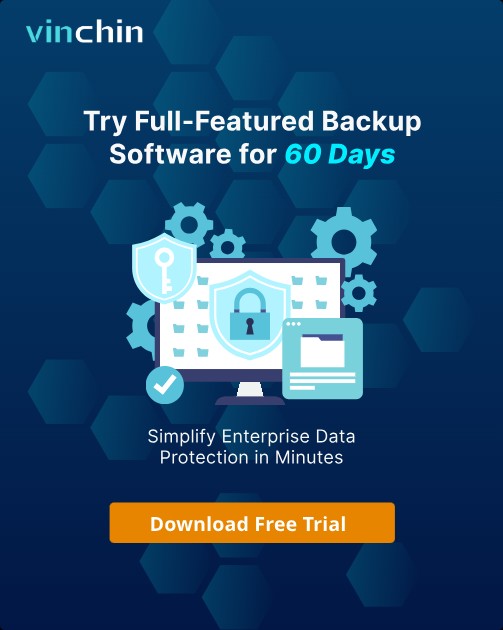-
Manufacturing Data Characteristics
-
Manufacturing Backup Challenges
-
Common Backup Methods in Manufacturing
-
Vinchin’s Data Protection Solution for Manufacturing
-
Manufacturing Data Backup FAQs
-
Conclusion
The manufacturing industry is changing fast. Digital transformation, automation, and the rise of IoT devices have made data the backbone of every factory. But with this progress comes risk. A single data loss event can halt production, damage your reputation, or even put you out of business. That’s why a robust manufacturing data backup solution is no longer optional—it’s essential. In this article, we’ll explore what makes manufacturing data unique, the challenges of protecting it, common backup methods, and how to choose the right solution for your factory.
Manufacturing Data Characteristics
Manufacturing data is unlike data in other industries. Modern factories generate massive volumes of information every day. Sensors and IoT devices on the shop floor constantly collect machine readings, environmental data, and production metrics. Manufacturing Execution Systems (MES) track every step of the production process, while Enterprise Resource Planning (ERP) systems manage inventory, orders, and supply chains. Design teams create and update CAD/CAM files, and machines produce detailed logs of their operations.
This data is not only large in scale but also highly sensitive. It often contains intellectual property, trade secrets, and proprietary processes. Losing this information could mean losing your competitive edge. Manufacturers also face strict retention requirements. Regulations may require you to keep production records, quality control data, and compliance documents for years or even decades. The data comes in many formats—structured databases, unstructured files, images, and logs—making backup and recovery more complex.
Manufacturing Backup Challenges
Protecting manufacturing data is not easy. One major hurdle is legacy system integration. Many factories still rely on older machines and software that may not work well with modern backup tools. Handling large-scale unstructured file management is another challenge, as design files and machine logs can quickly overwhelm storage systems. Factories must also minimize production downtime during backups. Any interruption can stop the assembly line and cost thousands of dollars per minute.
Compliance is a constant concern. Manufacturers must meet data retention mandates and follow cybersecurity standards like NIST and ISO. Failing to comply can lead to fines or legal trouble. The threat of ransomware and other cyberattacks is growing, with attackers targeting manufacturing for its valuable data and critical operations. Finally, supply chain vulnerabilities mean that a weak link—such as a partner with poor security—can put your data at risk.
Common Backup Methods in Manufacturing
Manufacturers use several methods to protect their data. Full backups create a complete copy of all data at a specific point in time. This method is reliable but can be slow and require a lot of storage. Incremental backups only save changes made since the last backup, reducing storage needs and speeding up the process. Snapshot-based protection captures the state of systems or files at regular intervals, allowing quick recovery from recent failures.
Many factories use offsite or cloud replication to store copies of data in remote locations. This protects against disasters like fires or floods at the main site. Automated retention policies help manage how long data is kept, ensuring compliance without wasting storage. Encryption is often used to secure sensitive data both in transit and at rest. Regular testing and validation of backups ensures that data can be restored when needed.
Vinchin’s Data Protection Solution for Manufacturing
Vinchin has already delivered data protection solutions to numerous enterprises in the manufacturing industry. Vinchin supports compatibility with over 19 virtualization environments—including VMware, Hyper-V, Proxmox—and extends coverage to physical servers as well as databases plus both on-premises or cloud file storage options found across diverse manufacturing IT infrastructures.
If you need migration capabilities between platforms or hosts within your environment, Vinchin Backup & Recovery offers some of the most flexible full-system migration features available—enabling seamless workload transfers across any supported virtual machines (VMs), physical servers,
or cloud hosts.
For critical workloads running on either virtual or physical machines, Vinchin delivers real-time backup alongside replication. These features provide extra recovery points plus automated failover, helping reduce both RPO (Recovery Point Objective) and RTO (Recovery Time Objective).
To guarantee reliable backups, Vinchin performs automatic integrity checks on stored backup sets and validates recoverability within an isolated environment. This ensures your vital business information remains restorable whenever needed. You can build a highly resilient disaster-recovery system using Vinchin: automated retention policies, cloud archiving/backup support, remote replicas, and DR center establishment all help ensure rapid restoration after incidents disrupt operations.
With its simple B/S web console and wizard-driven workflows, users quickly learn how to set up efficient backup/recovery jobs—even without deep technical expertise. A 60-day free trial lets you test Vinchin Backup & Recovery firsthand. Comprehensive documentation plus patient support engineers make deployment smooth—so you protect factory-critical digital assets from day one.
Manufacturing Data Backup FAQs
Q1: How often should manufacturing data be backed up?
A1: Backup frequency depends on data change rates, but critical systems often require daily or even real-time backups to minimize data loss.
Q2: Can backup solutions protect against ransomware in manufacturing?
A2: Yes, modern backup solutions use encryption, immutability, and rapid recovery to help restore data after ransomware attacks.
Q3: What is the best way to ensure compliance with data retention regulations?
A3: Use automated retention policies and regular audits to keep required data for the correct period and delete it when no longer needed.
Conclusion
Manufacturing data is vital and vulnerable. Effective backup strategies—tailored to the unique needs of factories—are essential for business continuity, compliance, and security. Vinchin offers a comprehensive solution to help manufacturers protect their most valuable digital assets and keep production running smoothly.
Share on:







